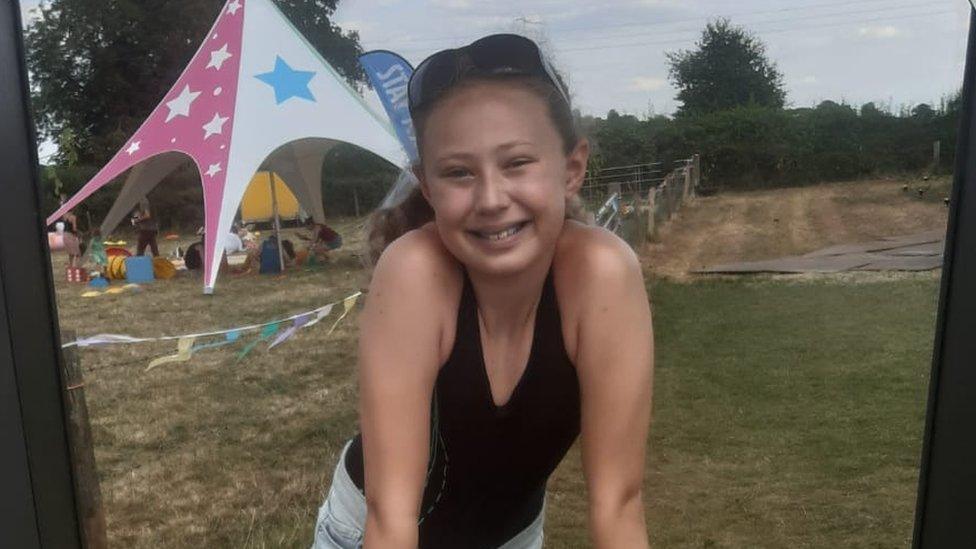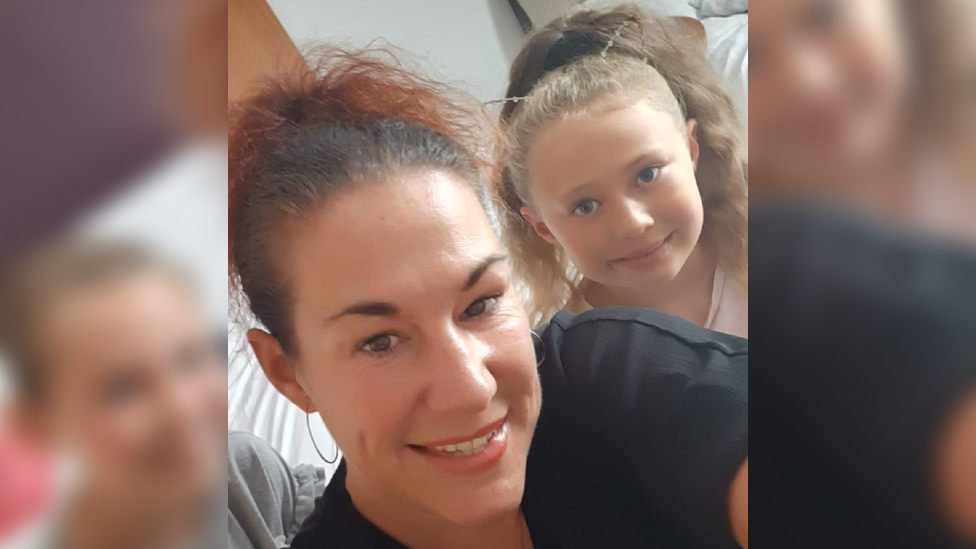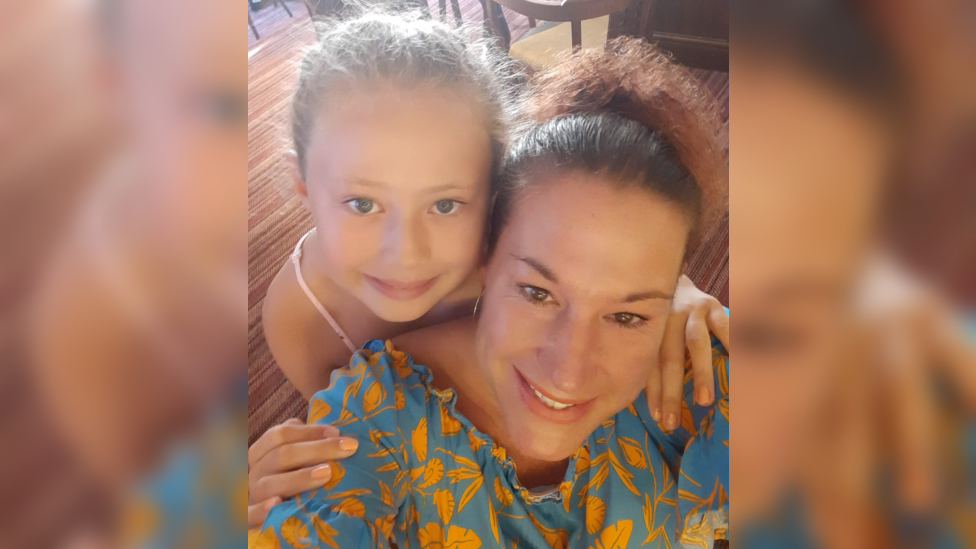Bath mother's fight for daughter's life-saving injections
- Published

Ms Park has described Isabella as her "miracle"
The mother of a girl with a rare health condition wants her teachers to administer her life-saving medication.
Isabella, 11, from Bath, suffers from panhypopituitarism, a defect in the pituitary gland.
Her mother Kelly Park wants private training for Isabella's teachers to give her injections, after the local hospital said it would not train them.
The hospital said despite concerns, national guidelines only trained staff can administer it must be followed.
Ms Park has launched a petition, external, which has more than 88,000 signatures, and she hopes it will result in government interest.

Doctors told the family Isabella was lucky to survive
The hydrocortisone injections Isabella is given replaces hormones that, because of her condition, her body does not naturally produce.
In an emergency she would need an intramuscular injection (IM).
Her previous schools have administered the medication without the training but the high school she will attend from next month - St Gregory's Catholic School in Bath - has said they cannot risk having teachers without the training carrying out the injection.
It means Isabella risks going to school without a trained carer on standby if she becomes ill.
'Overstretched' ambulances
Currently, specialist training is needed before someone is allowed to give an IM injection, meaning even in an emergency Isabella must wait for ambulance services that Ms Park said are "already overstretched".
The reason teachers cannot administer the injection is that, unlike an EpiPen, it does not come pre-loaded.
St Gregory's Business manager Adam Sheldon, who has has been in contact with Kelly, said: "The underlying issue is that the clear, unambiguous advice from the NHS is that intramuscular injections can and should only be administered by staff who have had training which gives them the competence to administer this injection type."

Ms Park says she is determined to keep campaigning
However, Ms Park said preparing the injection is simple, and The Pituitary Foundation, external has a guide for carrying it out.
"If you do [give the injection] and it's not needed, no harm will come," she said.
"I just need to know that my daughter is going to be safe at school."
'Very sorry'
Ms Park approached a local registered nurse who offered to independently train teachers, but was then told she was not insured and could not carry out the training.
Ms Park says also asked Bristol Children's Hospital to provide training but they refused.
Professor Deirdre Fowler, chief nurse and midwife at University Hospitals Bristol and Weston NHS Foundation Trust, said the trust "explored a number of different options that are in line with meeting health needs" in education but due to patient confidentiality could not comment further.
"We are very sorry to hear of this family's concerns" she added.

Panhypopituitarism
Isabella's condition is an extremely rare, as many children that have it die when very young.
Cortisol, commonly thought of as a stress chemical, regulates responses to inflammation and illness.
For people with Panhypopituitarism, the pituitary gland does not produce cortisol, meaning the body's reaction to stressors is greatly reduced.
Without this, someone could enter an adrenal crisis, external, resulting in a coma or, potentially, death.


Isabella will be starting secondary school this September

Follow BBC West on Facebook, external, Twitter, external and Instagram, external. Send your story ideas to: bristol@bbc.co.uk
Related topics
- Published16 August 2022
